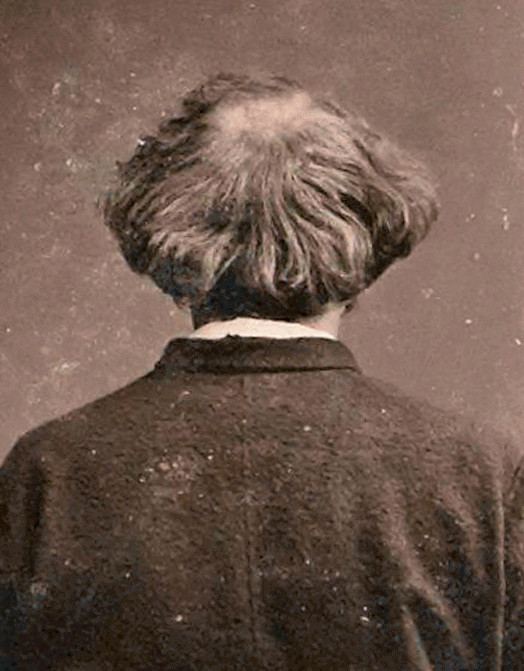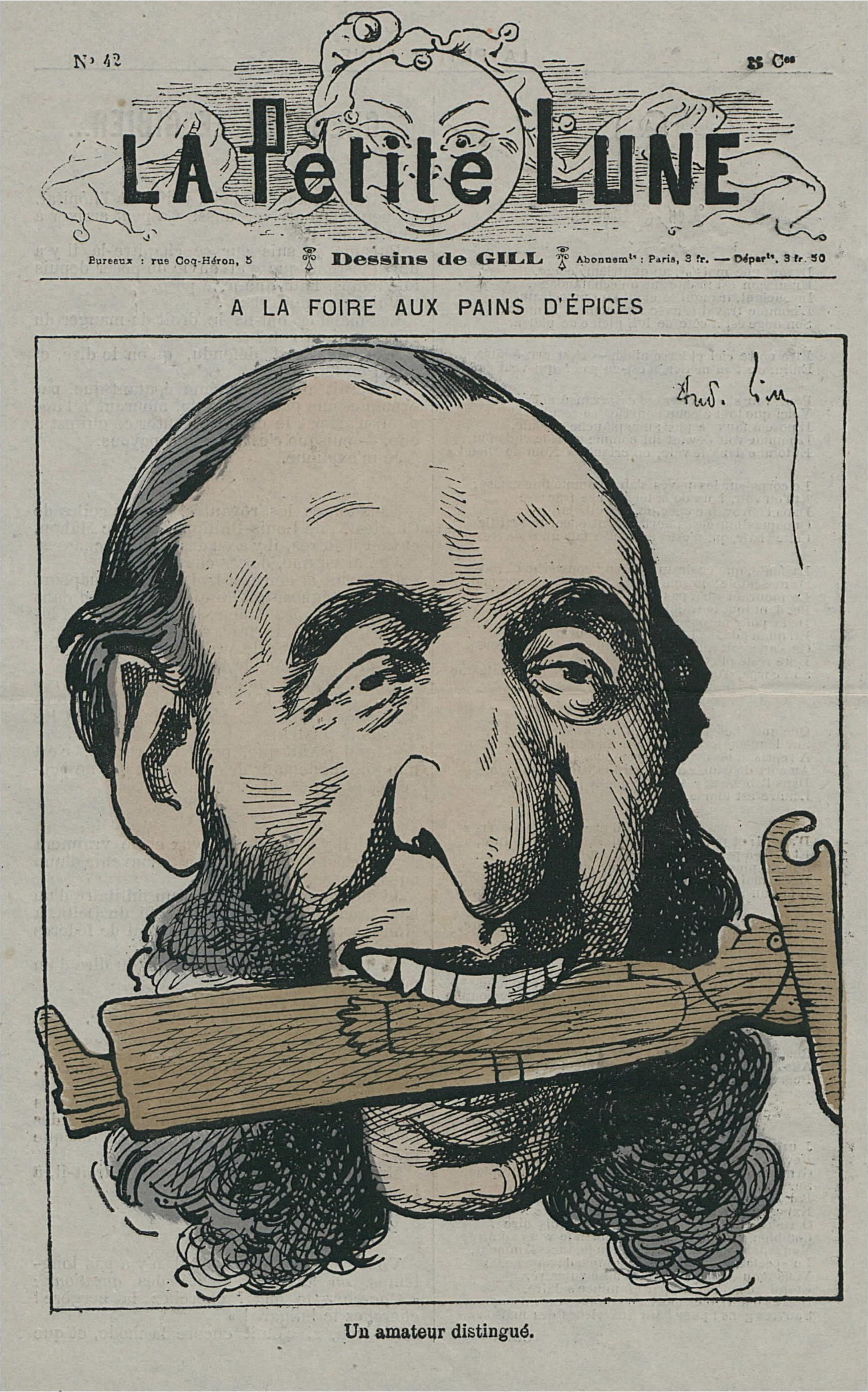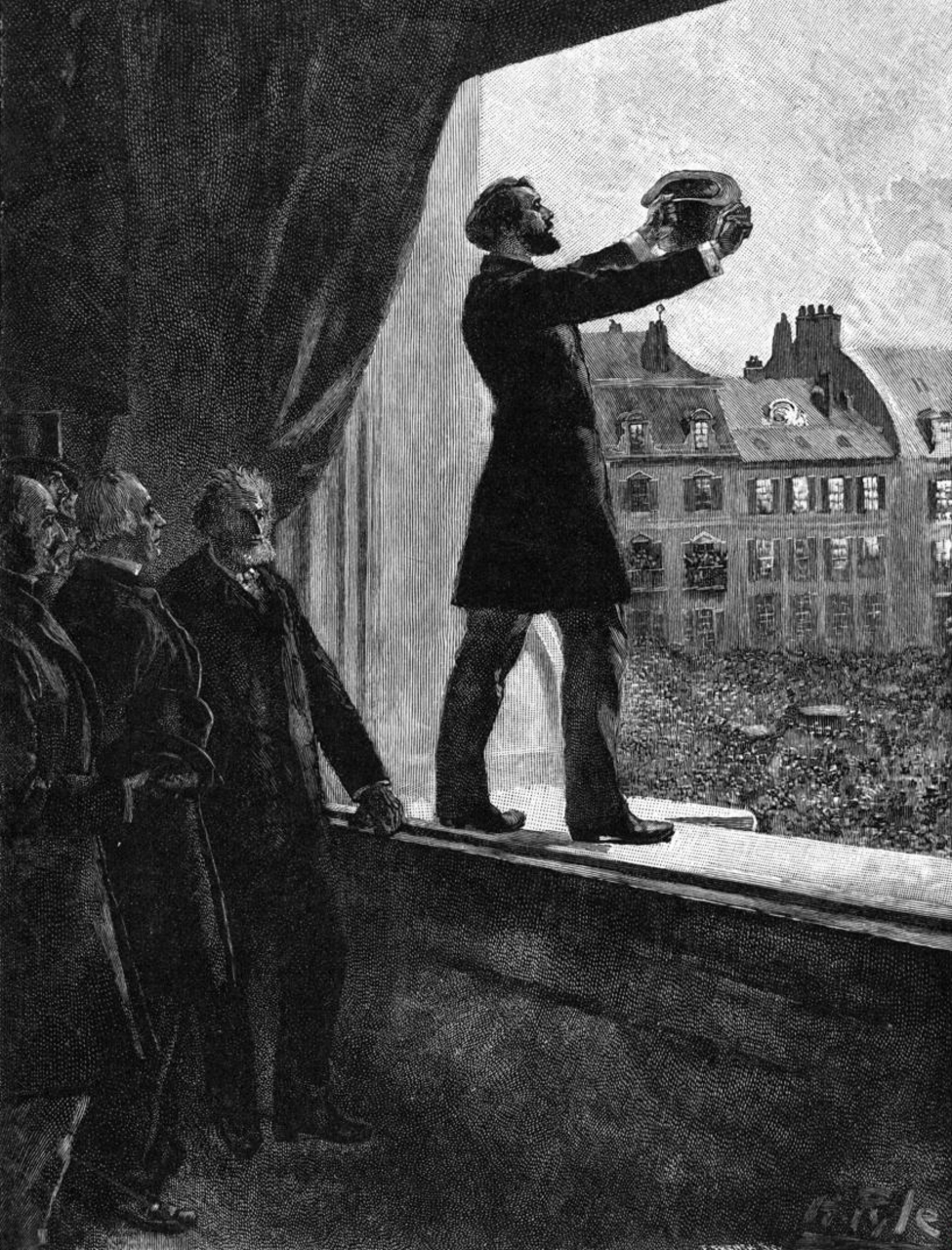|
Charles De Freycinet
Charles Louis de Saulces de Freycinet (; 14 November 1828 – 14 May 1923) was a French statesman and four times Prime Minister during the Third Republic. He also served an important term as Minister of War (1888–1893). He belonged to the Opportunist Republicans faction. He was elected a member of the Academy of Sciences, and in 1890, the fourteenth member to occupy a seat in the Académie Française. Biography Early years Freycinet was born at Foix ( Ariège) of a Protestant family and was the nephew of Louis de Freycinet, a French navigator. Charles Freycinet was educated at the ''École Polytechnique''. He entered government service as a mining engineer (see X-Mines). In 1858 he was appointed traffic manager to the ''Compagnie de chemins de fer du Midi'', a post in which he showed a remarkable talent for organization, and in 1862 returned to the engineering service, attaining in 1886 the rank of inspector-general. He was sent on several special scientific missions, inclu ... [...More Info...] [...Related Items...] OR: [Wikipedia] [Google] [Baidu] |
Nadar
Gaspard-Félix Tournachon (5 April 1820 – 20 March 1910), known by the pseudonym Nadar, was a French photographer, caricaturist, journalist, novelist, balloonist, and proponent of heavier-than-air flight. In 1858, he became the first person to take aerial photographs. Photographic portraits by Nadar are held by many of the great national collections of photographs. His son, Paul Nadar (1856–1939), continued the studio after his death. Life Gaspard-Félix Tournachon (also known as Nadar) was born in early April 1820 in Paris, though some sources state he was born in Lyon. His father, Victor Tournachon, was a printer and bookseller. Nadar began to study medicine but quit for economic reasons after his father's death. Nadar started working as a caricaturist and novelist for various newspapers. He fell in with the Parisian bohemian group of Gérard de Nerval, Charles Baudelaire, and Théodore de Banville. His friends picked a nickname for him, perhaps by a playful habit of ... [...More Info...] [...Related Items...] OR: [Wikipedia] [Google] [Baidu] |
Paris
Paris () is the capital and most populous city of France, with an estimated population of 2,165,423 residents in 2019 in an area of more than 105 km² (41 sq mi), making it the 30th most densely populated city in the world in 2020. Since the 17th century, Paris has been one of the world's major centres of finance, diplomacy, commerce, fashion, gastronomy, and science. For its leading role in the arts and sciences, as well as its very early system of street lighting, in the 19th century it became known as "the City of Light". Like London, prior to the Second World War, it was also sometimes called the capital of the world. The City of Paris is the centre of the Île-de-France region, or Paris Region, with an estimated population of 12,262,544 in 2019, or about 19% of the population of France, making the region France's primate city. The Paris Region had a GDP of €739 billion ($743 billion) in 2019, which is the highest in Europe. According to the Economis ... [...More Info...] [...Related Items...] OR: [Wikipedia] [Google] [Baidu] |
Paul-Armand Challemel-Lacour
Paul-Armand Challemel-Lacour (19 May 1827 – 26 October 1896) was a French statesman. Biography Paul-Armand Challemel-Lacour was born in Avranches in the Manche ''département'' of northwestern France. After passing through the École Normale Supérieure he became professor of philosophy successively at Pau and at Limoges. The '' coup d'état'' of 1851 by Napoleon III caused his expulsion from France for his republican opinions. He travelled on the continent, gave conferences in Belgium and in 1856 settled down as professor of French literature at the Federal Polytechnic Institute Zurich, today the ETH Zurich. The amnesty of 1859 enabled him to return to France, but a projected course of lectures on history and art was immediately suppressed. He now supported himself by his pen, and became a regular contributor to the reviews. On the fall of the Second French Empire in September 1870 the government of national defence appointed him prefect of the Rhône ''département'', in ... [...More Info...] [...Related Items...] OR: [Wikipedia] [Google] [Baidu] |
Ministry Of Foreign Affairs And International Development (France)
The Ministry for Europe and Foreign Affairs () is the ministry of the Government of France that handles France's foreign relations. Since 1855, its headquarters have been located at 37 Quai d'Orsay, close to the National Assembly. The term Quai d'Orsay is often used as a metonym for the ministry. Its cabinet minister, the Minister of Europe and Foreign Affairs (french: Ministre de l'Europe et des Affaires étrangères) is responsible for the foreign relations of France. The current officeholder, Catherine Colonna, was appointed in 2022. In 1547, royal secretaries became specialised, writing correspondence to foreign governments and negotiating peace treaties. The four French secretaries of state where foreign relations were divided by region, in 1589, became centralised with one becoming first secretary responsible for international relations. The Ancien Régime position of Secretary of State for Foreign Affairs became Foreign Minister around 1723; Charles Hélion Marie le ... [...More Info...] [...Related Items...] OR: [Wikipedia] [Google] [Baidu] |
Jules Ferry
Jules François Camille Ferry (; 5 April 183217 March 1893) was a French statesman and republican philosopher. He was one of the leaders of the Moderate Republicans and served as Prime Minister of France from 1880 to 1881 and 1883 to 1885. He was a promoter of laicism and colonial expansion. Under the Third Republic, Ferry made primary education free and compulsory through several new laws. However, he was forced to resign following the Sino-French War in 1885 due to his unpopularity and public opinion against the war. Biography Early life and family Ferry was born Saint-Dié, in the Vosges department, to Charles-Édouard Ferry, a lawyer from a family that had established itself in Saint-Dié as bellmakers, and Adélaïde Jamelet. His paternal grandfather, François-Joseph Ferry, was mayor of Saint-Dié through the Consulate and the First Empire. He studied law, and was called to the bar at Paris in 1854, but soon went into politics, contributing to various newspape ... [...More Info...] [...Related Items...] OR: [Wikipedia] [Google] [Baidu] |
William Waddington
William Henry Waddington (11 December 182613 January 1894) was a French statesman who served as Prime Minister in 1879, and as an Ambassador of France. Early life and education Waddington was born at the Château of Saint-Rémy in Eure-et-Loir, the son of a rich British industrialist, Thomas Waddington, whose family had established a large cotton manufacturing business in France, Établissements Waddington fils et Cie. His father and mother Anne (née Chisholm) were both naturalised French citizens, and Waddington received his early education at the Lycée Louis-le-Grand in Paris. He was then sent to Rugby School in Britain, supervised by his uncle Walter Shirley. After Rugby, he was admitted to Trinity College, Cambridge; he took an MA degree, having won Second Prize in Classics as well as the prestigious Chancellor's Gold Medal. Waddington rowed in the victorious Cambridge eight in the Oxford and Cambridge Boat Race on the Thames in race of March 1849; he did not take ... [...More Info...] [...Related Items...] OR: [Wikipedia] [Google] [Baidu] |
Charles Duclerc
Charles Théodore Eugène Duclerc (; 7 August 1812, Bagnères-de-Bigorre – 29 January 1888) was a French journalist and politician of the Third Republic. He was a member of the editorial board of the ''National'' newspaper. Duclerc served as Minister of Finance from May through June in the Provisional government of France.Biographical note contained in the ''Collected works of Karl Marx and Frederick Engels: Volume 10'', p. 717. Later served as prime minister from 1882 to 1883 in the third Republic. Duclerc was born in Bagnères-de-Bigorre and he died in Paris. Duclerc's Ministry, 7 August 1882 – 29 January 1883 *Charles Duclerc – President of the Council and Minister of Foreign Affairs *Jean-Baptiste Billot – Minister of War *Armand Fallières – Minister of the Interior *Pierre Tirard – Minister of Finance * Paul Devès – Minister of Justice and Worship *Jean Bernard Jauréguiberry – Minister of Marine and Colonies * Jules Duvaux – Minister of Public ... [...More Info...] [...Related Items...] OR: [Wikipedia] [Google] [Baidu] |
Léon Gambetta
Léon Gambetta (; 2 April 1838 – 31 December 1882) was a French lawyer and republican politician who proclaimed the French Third Republic in 1870 and played a prominent role in its early government. Early life and education Born in Cahors, Gambetta is said to have inherited his vigour and eloquence from his father, a Genoese grocer who had married a Frenchwoman named Massabie. At the age of fifteen, Gambetta lost the sight of his right eye in an accident, and it eventually had to be removed. Despite this handicap, he distinguished himself at school in Cahors. He then worked at his father's grocery shop in Cahors, the ''Bazar génois'' ("Genoese bazaar"), and in 1857 went to study at the Faculty of Law of Paris. His temperament gave him great influence among the students of the '' Quartier latin'', and he was soon known as an inveterate enemy of the imperial government. Career Gambetta was called to the bar in 1859. He was admitted to the Conférence Molé in 1861 and wrot ... [...More Info...] [...Related Items...] OR: [Wikipedia] [Google] [Baidu] |
René Goblet
René Goblet (; 26 November 1828 – 13 September 1905) was a French politician, Prime Minister of France for a period in 1886–1887. He was born at Aire-sur-la-Lys, Pas-de-Calais and was trained in law. Under the Second Empire, he helped found a Liberal journal, ''Le Progrès de la Somme'', and in July 1871 he was sent by the ''département'' of the Somme to the National Assembly, where he took his place on the extreme left, as a member of the Republican Union parliamentary group (''Union républicaine''). Having failed to secure election in 1876, he was returned for Amiens the following year. He held a minor government office in 1879, and in 1882 became minister of the interior in the Freycinet cabinet. He was minister of education, fine arts and religion in Henri Brisson's first cabinet in 1885, and again under Freycinet in 1886, when he greatly increased his reputation by an able defence of the government's education proposals. Meanwhile, his independence and outspokenne ... [...More Info...] [...Related Items...] OR: [Wikipedia] [Google] [Baidu] |
Henri Brisson
Eugène Henri Brisson (; 31 July 183514 April 1912) was a French statesman, Prime Minister of France for a period in 1885-1886 and again in 1898. Biography He was born at Bourges (Cher), and followed his father's profession of advocate. Having made his mark in opposition during the last days of the empire, he was appointed deputy-mayor of Paris after the government was overthrown. He was elected to the Assembly on 8 February 1871, as a member of the extreme Left. While not approving of the Commune, he was the first to propose amnesty for the condemned (on 13 September 1871), but the proposal was voted down. He strongly supported compulsory primary education, and was firmly anti-clerical. He was president of the chamber from 1881—replacing Léon Gambetta—to March 1885, when he became prime minister upon the resignation of Jules Ferry; but he resigned when, after the general elections of that year, he only just obtained a majority for the vote of credit for the Tongking expe ... [...More Info...] [...Related Items...] OR: [Wikipedia] [Google] [Baidu] |
Jules Grévy
François Judith Paul Grévy (15 August 1807 – 9 September 1891), known as Jules Grévy (), was a French lawyer and politician who served as President of France from 1879 to 1887. He was a leader of the Moderate Republicans, and given that his predecessors were monarchists who tried without success to restore the French monarchy, Grévy is considered the first real republican president of France. Born in a small town in the Jura department, Grévy moved to Paris where he initially followed a career in law before becoming a republican activist. He began his political career after the French Revolution of 1848, as a member of the National Assembly of the French Second Republic, where he became known for his opposition to Louis-Napoléon Bonaparte and as a supporter of lesser authority for the executive branch. During the 1851 coup d'état by Louis-Napoléon he was briefly imprisoned, and afterwards retired from political life. With the downfall of the Second French Empire ... [...More Info...] [...Related Items...] OR: [Wikipedia] [Google] [Baidu] |
Marie François Sadi Carnot
Marie François Sadi Carnot (; 11 August 1837 – 25 June 1894) was a French statesman, who served as the President of France from 1887 until his assassination in 1894. Early life Marie François Sadi Carnot was the son of the statesman Hippolyte Carnot and was born in Limoges, Haute-Vienne. His third given name Sadi was in honour of his uncle Nicolas Léonard Sadi Carnot, the engineer who formulated the second law of thermodynamics and is generally regarded as the founder of the subject, named after the famed Persian poet Sadi of Shiraz. Like his uncle, Marie François too came to be known as Sadi Carnot. In his scientific-mindedness and Republican leanings, he resembled his grandfather, Lazare Carnot, the military modernizer and member of the Directory of the French Revolution. He was educated as a civil engineer and was a highly distinguished student at both the École Polytechnique and the École des Ponts et Chaussées. After his academic course, he obtained an appointment ... [...More Info...] [...Related Items...] OR: [Wikipedia] [Google] [Baidu] |








